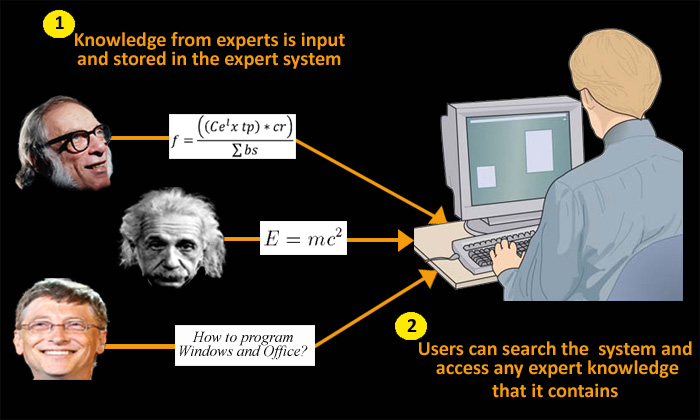Expert systems represent a remarkable breakthrough in the field of artificial intelligence (AI).
These systems have revolutionized decision-making processes across various industries, providing invaluable insights and facilitating accurate problem-solving.
In this article, we will explore the concept of expert systems, delve into their inner workings, and shed light on their diverse applications in AI.
Defining Expert Systems
ExpertSystems, also known as knowledge-based systems, are computer programs designed to emulate human expertise in specific domains.
These systems employ advanced algorithms and rule-based reasoning to solve complex problems, perform tasks, and provide intelligent recommendations.
By harnessing the power of AI, expertsystems enable organizations to leverage expert-level knowledge without relying solely on human experts.
Components of Expert Systems
ExpertSystems consist of two primary components: the knowledge base and the inference engine. The knowledge base encompasses a vast repository of domain-specific information, rules, and heuristics.
It serves as the foundation for decision-making within the system. The inference engine, on the other hand, is responsible for processing data, executing rules, and drawing conclusions based on the information stored in the knowledge base.
Knowledge Base and Inference Engine
The knowledge base, as mentioned earlier, serves as the repository of expertise in an expert system. It contains a vast collection of rules, facts, relationships, and algorithms derived from human experts or extensive research.
These rules govern the behavior of the system, enabling it to make informed decisions and provide accurate recommendations.
The inference engine, in conjunction with the knowledge base, carries out the reasoning process. It applies the rules and heuristics stored in the knowledge base to the given input data.
By utilizing various reasoning techniques, such as forward chaining or backward chaining, the inference engine arrives at solutions or recommendations based on the available information.
The Role of Expert Systems in AI
ExpertSystems play a crucial role in AI by bridging the gap between human expertise and machine intelligence. They provide an effective means to capture, store, and utilize domain-specific knowledge.
By enabling organizations to codify their experts’ knowledge, expertsystems ensure that valuable insights and decision-making capabilities are accessible to a broader audience.
Moreover, expertsystems can handle vast amounts of data and process it efficiently, thereby enhancing productivity and reducing human errors.
They serve as powerful tools for augmenting human expertise, enabling professionals to make informed decisions more rapidly and accurately.
Applications of Expert Systems
Expertsystems find applications in numerous domains, ranging from healthcare and finance to manufacturing and customer support.
In healthcare, for instance, expertsystems assist in diagnosing medical conditions, recommending treatments, and aiding in clinical decision-making.
In finance, these systems analyze market trends, predict investment outcomes, and provide personalized financial advice.
In manufacturing, expertsystems optimize production processes, monitor equipment performance, and aid in quality control.
Customer support departments utilize expertsystems to provide personalized assistance and resolve customer queries efficiently.
These are just a few examples that illustrate the versatility and potential impact of expertsystems across industries.
Advantages and Limitations of Expert Systems
The advantages of expert systems are manifold. They enhance decision-making by leveraging expert knowledge, ensure consistency in problem-solving, and enable the efficient utilization of vast amounts of data.
Expert systems also contribute to knowledge management within organizations, allowing for the preservation and dissemination of expertise.
However, expert systems have certain limitations. They heavily rely on the accuracy and completeness of the knowledge base, which can be challenging to achieve.
Furthermore, expert systems struggle with handling uncertain or ambiguous information, as they primarily operate within well-defined rule-based frameworks.
Finally, the development and maintenance of expert systems can be resource-intensive, requiring continuous updates and validation.
Conclusion
Expert systems, with their ability to emulate human expertise, have revolutionized decision-making processes across industries.
By combining advanced algorithms, rule-based reasoning, and vast knowledge repositories, these systems enable organizations to solve complex problems, provide intelligent recommendations, and enhance productivity.
While they have limitations, expert systems continue to evolve and find applications in diverse domains, offering significant advantages to those who embrace their potential.

